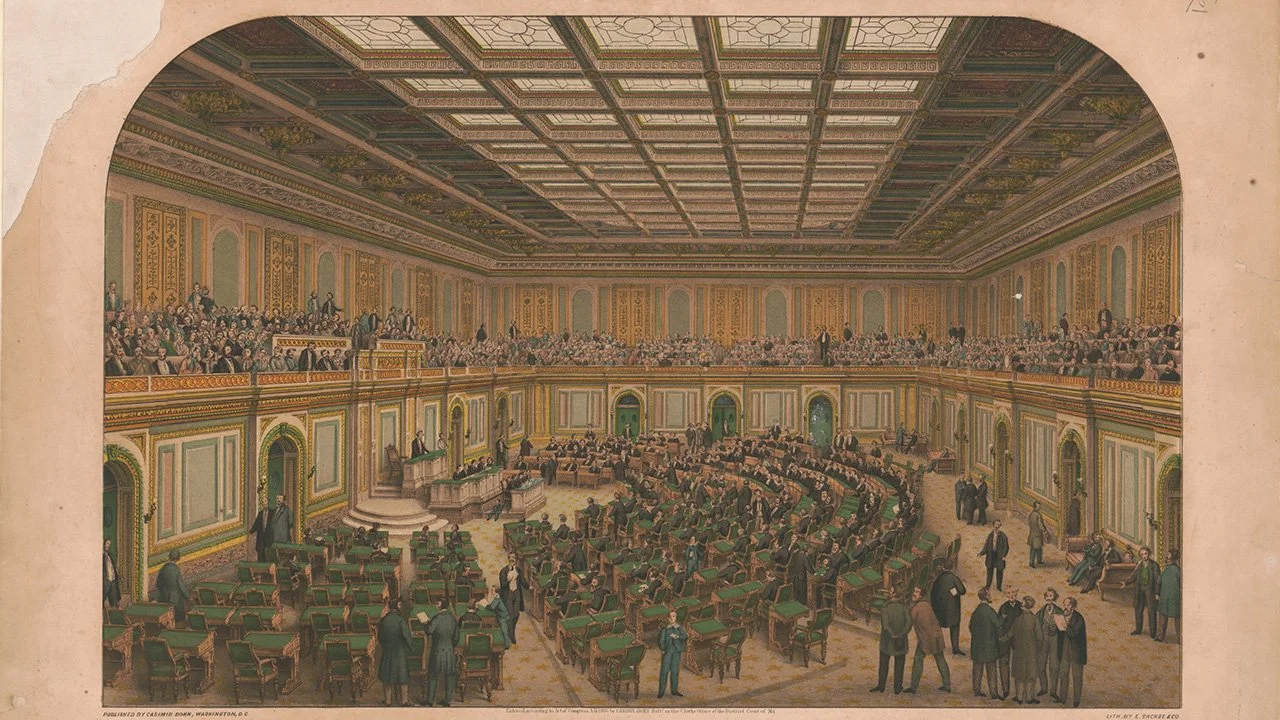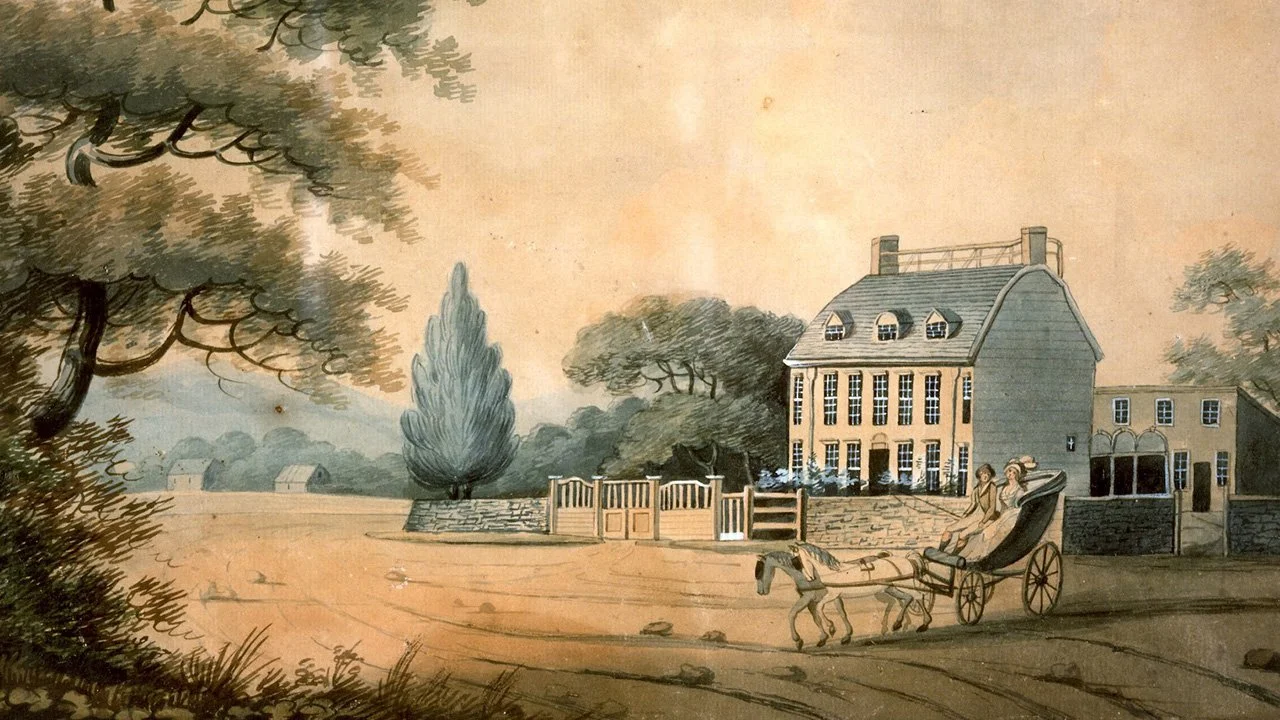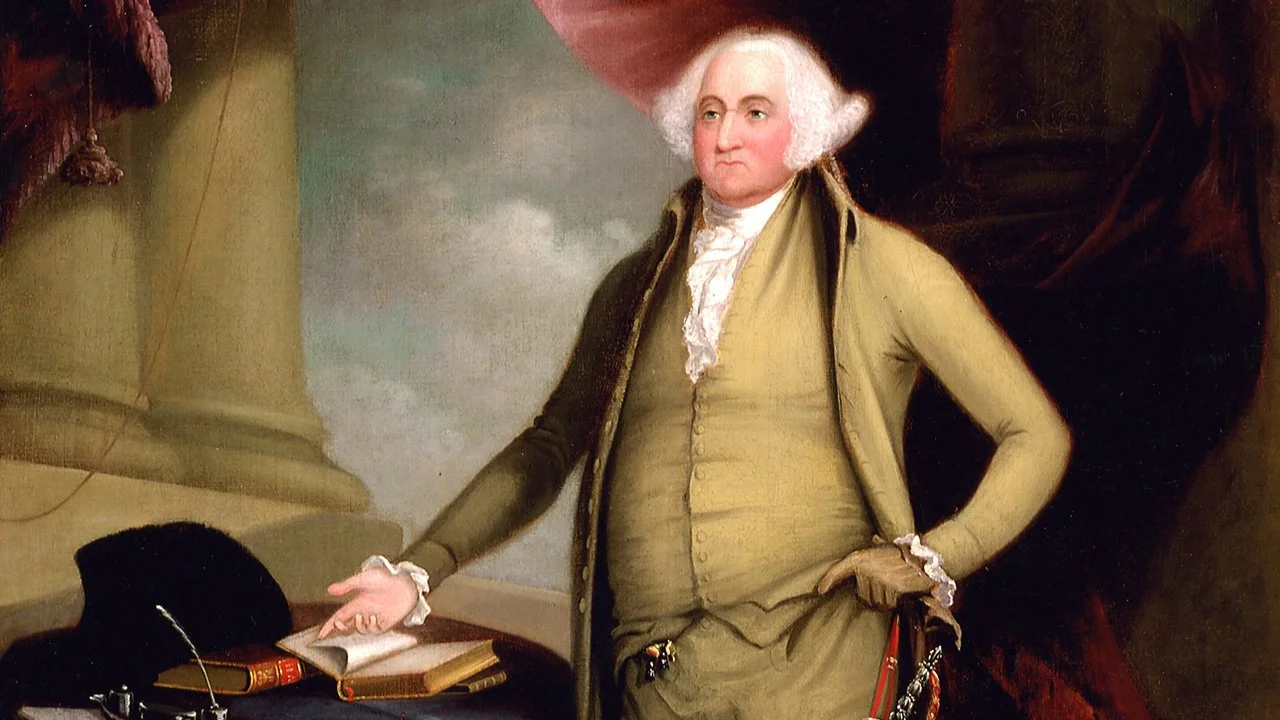The House of Representatives Chooses Thomas Jefferson
The presidential election of 1800 ended in a tie, as the two Democratic-Republican candidates, Thomas Jefferson and Aaron Burr, each received 73 electoral votes. Burr had been added to the ticket to carry his home state of New York, but it was assumed that nationally Jefferson would get the most votes and Burr the second most. When that did not happen, the election moved to the United States House of Representatives in accordance with Article 2, Section 1 of the Constitution.
The Election of 1800
The presidential election of 1800 was one of the most controversial and consequential in the history of the United States. It represented a true changing of the guard as the Federalist party of Washington, Hamilton, and Adams gave way to the Democratic-Republican ideals of Jefferson and Madison and took the United States in a different direction for a generation to come.
The Legacy of John Adams
John Adams’s loss to Thomas Jefferson in the presidential election of 1800 was a great disappointment for Adams and marked the end of the public life of this devoted patriot. For a quarter of a century, Adams had been serving at the center of the fight to create and establish the country he loved. By all accounts, he arguably did more to shape the United States than any other Founding Father, except for the incomparable George Washington.
Relations with France Fall Apart
America’s first armed conflict following the American Revolution was a mostly forgotten fight with France called the Quasi-War and was the culmination of a series of disagreements with our former ally. In 1793, to avoid getting drawn into the latest war between Great Britain and France, President George Washington issued his Proclamation of Neutrality. This declaration angered the French because they considered Washington’s refusal to help them as a violation of the 1778 Treaty of Alliance.
The Inspiring Legacy of John Adams
John Adams lost the Presidential election of 1800 to Thomas Jefferson after a bitter fight. Adams, a critical player in practically every major event of our nation’s formative years, retired to Quincy, Massachusetts, where he spent his time working his farm and staying out of politics.
The Presidency of John Adams
John Adams faced many difficulties during his presidency, including a vice president from an opposing party trying to undermine his administration and rising tensions with France.
John Adams and the Presidential Election of 1796
The election of 1796 was America’s first contested presidential election. With George Washington’s retirement, the electorate split into two camps. Under the original rules of the Constitution, the top vote getter, John Adams, a Federalist, was declared President and the second highest, Thomas Jefferson, a Democratic-Republican, was named Vice President.
John Adams, Our First Vice President
In the first Presidential election, the Electoral College met on February 4, 1789, and unanimously selected George Washington as President. The second highest vote getter was John Adams, thus becoming America’s first Vice President.
John Adams Negotiates Peace with England
In 1788, after serving as ambassador to England, John Adams sailed for home. For the previous ten years, this devoted patriot had been away from America for all but a few months. His tireless work with the Netherlands secured desperately needed funding for our revolution and the generous terms he obtained in the Treaty of Paris gave our young nation a chance at success.
John Adams, A Diplomat in Europe
John Adams retired from Congress in November 1777 but was soon appointed as a commissioner to France, marking the start of his diplomatic career. After two years in France, Adams, on his own initiative, set off for Amsterdam, the capital of the Netherlands, to secure recognition of American independence and obtain a desperately needed loan for the United States.
John Adams Dominates Second Continental Congress
Through sheer force of will and a supremely convincing explanation of democratic government, John Adams almost single-handedly convinced the Second Continental Congress to unanimously approve our Declaration of Independence on July 4, 1776.
The Second Continental Congress Convenes
In 1775, despite the seemingly unavoidable conflict between the colonies and England, there was disagreement regarding our future relationship. Some, like John Dickinson, wanted to remain loyal to the King, some were undecided, and others, including John Adams, wanted to declare independence. Watch Americana Corner’s latest video and learn how the opening debates resulted in a last attempt at reconciliation, and why it still matters today.
John Adams Joins the Fight for Independence
By 1773, John Adams had established a prosperous legal practice and had a fine family. He believed differences with the Crown could be and should be worked out. But after the Boston Tea Party, and England’s response, Adams became committed to the cause of independence as one of Massachusetts’ representatives to the First Continental Congress.
John Adams, Boston’s Top Attorney
John Adams was one of the most respected attorneys in Boston. His highest profile case came in 1770 with the Boston Massacre trial. When no one else would take their case, Adams agreed to defend seven British soldiers accused of murdering five civilians who as part of a large mob had threatened the men.
John Adams Comes of Age
John Adams, one of America’s greatest Patriots, played an important role in allowing America to gain its independence from England. His upbringing in a Puritan home had tremendous impact on his fine character and straightforward manner so frequently displayed throughout his life.
A Historic Gathering at the First Continental Congress
In 1774, the First Continental Congress brought together many influential leaders from colonial America. 56 men, including George Washington and John Adams, met to formulate a response to England’s Coercive Acts, which closed the port of Boston and revoked Massachusetts’ colonial charter in response to the Boston Tea Party. This historic gathering was the first time complete separation from England was openly discussed.





















